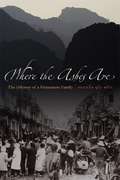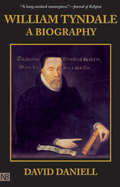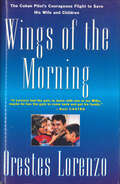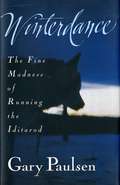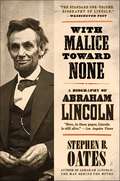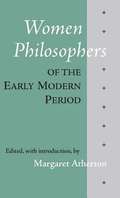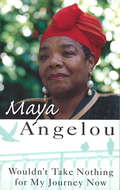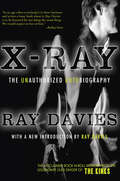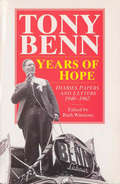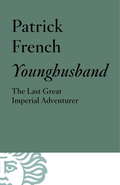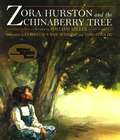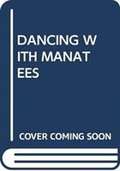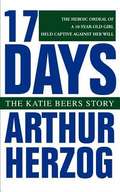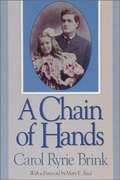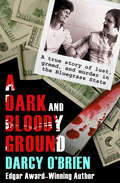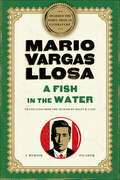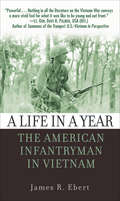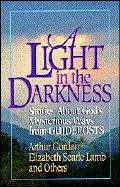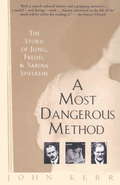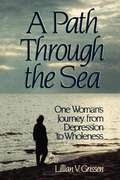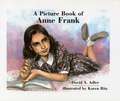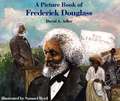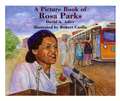- Table View
- List View
Where the Ashes Are: The Odyssey of a Vietnamese Family
by Nguyen Qui Du’cIn 1968 Nguyen Qui Duc was nine years old, his father was a high-ranking civil servant in the South Vietnamese government, and his mother was a school principal. Then the Viet Cong launched their Tet offensive, and the Nguyen family’s comfortable life was destroyed. The author’s father was taken prisoner and marched up the Ho Chi Minh Trail. North Vietnam's highest-ranking civilian prisoner, he eventually spent twelve years in captivity, composing poems in his head to maintain his sanity. Nguyen himself escaped from Saigon as North Vietnamese tanks approached in 1975. He came of age as an American teenager, going to school dances and working at a Roy Rogers restaurant, yet yearning for the homeland and parents he had to leave behind. The author’s mother stayed in Vietnam to look after her mentally ill daughter. She endured poverty and “reeducation” until her husband was freed and the Nguyens could reunite. Intertwining these three stories, Where the Ashes Are shows us the Vietnam War through a child’s eyes, privation after a Communist takeover, and the struggle of new immigrants. The author, who returned to Vietnam as an American reporter, provides a detailed portrait of the nation as it opened to the West in the early 1990s. Where the Ashes Are closes with Nguyen’s thoughts on being pulled between his adopted country and his homeland.
Who's Who of Sanskrit Scholars in India, 1991
by K. C. DuttThere are thousands of eminent living practitioners in the various fields of classical learning scattered through the length and breadth of India from north to south, and east to west, whose lingua franca of intellectual discourse is Sanskrit and who converse with each other on the subtlest issues with as great a sophistication and erudition as their counterparts in this country do in hundreds of the seminars that are organised around the country each year and where only those who have proficiency in writing and speaking English, participate and discuss in a world whose terms of intellectual discourse have little to do with those which were developed in the country over millennia by some of the greatest minds the world has ever seen in the long period of its history up till now.
William Tyndale
by David DaniellWilliam Tyndale (1494-1536) was the first person to translate the Bible into English from its original Greek and Hebrew and the first to print the Bible in English, which he did in exile. Giving the laity access to the word of God outraged the clerical establishment in England: he was condemned, hunted, and eventually murdered. However, his masterly translation formed the basis of all English bibles--including the "King James Bible," many of whose finest passages were taken unchanged, though unacknowledged, from Tyndale's work.This important book, published in the quincentenary year of his birth, is the first major biography of Tyndale in sixty years. It sets the story of his life in the intellectual and literary contexts of his immense achievement and explores his influence on the theology, literature, and humanism of Renaissance and Reformation Europe.David Daniell, editor of Tyndale's New Testament and Tyndale's Old Testament, eloquently describes the dramatic turns in Tyndale's life. Born in England and educated at Oxford, Tyndale was ordained as a priest. When he decided to translate the Bible into English, he realized that it was impossible to do that work in England and moved to Germany, living in exile there and in the Low Countries while he translated and printed first the New Testament and then half of the Old Testament. These were widely circulated-and denounced-in England. Yet Tyndale continued to write from abroad, publishing polemics in defense of the principles of the English reformation. He was seized in Antwerp, imprisoned in Vilvoorde Castle near Brussels, and burnt at the stake for heresy in 1536.Daniell discusses Tyndale's achievement as biblical translator and expositor, analyzes his writing, examines his stylistic influence on writers from Shakespeare to those of the twentieth century, and explores the reasons why he has not been more highly regarded. His book brings to life one of the great geniuses of the age.
Wings of the Morning
by Orestes Lorenzo"A moving testament, his narrative provides an insider's look at the Castro regime's personality cult, its indoctrination of children and surveillance of ordinary Cubans. " - Publishers WeeklyIn December 1992 Orestes Lorenzo undertook the most daring journey of his life. More than a year earlier, while a major in the Cuban Air Force, he had escaped from Cuba by flying a MiG to the United States, and for twenty-one frantic months had been trying to get permission for his wife, Vicky, and their two sons to join him. When all his attempts to gain their freedom failed, Orestes decided to go back and rescue his family himself. Meanwhile, Vicky had been undergoing a terrifying ordeal back in Cuba, where the authorities were pressuring her to denounce her husband as a traitor. They informed her that she would never be allowed to leave, and that Raul Castro himself had declared: "If Lorenzo had the guts to leave with one of my MiGs, maybe he has the guts to come back and get his family." Desperate, Orestes Lorenzo did just that, flying an old twin-engine Cessna across the straits of Florida, avoiding Cuban radar, and landing on a busy highway in a breathtaking rescue. Wings of Morning is Lorenzo's account of this astonishing feat, but it is also the unforgettable odyssey of a young man growing up during the euphoria of the Cuban Revolution, marrying his sweetheart, and going off to train as a fighter pilot in the Soviet Union. Lorenzo movingly describes his growing disillusionment with communism, his religious awakening amidst the revelations of Perestroika, and the near-death of his beloved Vicky, as well as his increasing conviction that he must not let his children grow up in a country that denies any dignity or spiritual values in the individual, in the family, and to society.
Winterdance: The Fine Madness of Running the Iditarod
by Gary PaulsenPaulsen and his team of dogs endured snowstorms, frostbite, dogfights, moose attacks, sleeplessness, and hallucinations in the relentless push to go on.
With Malice Toward None: A Biography of Abraham Lincoln
by Stephen B. OatesNew York Times–Bestseller: “The standard one-volume biography of Lincoln.” —The Washington PostThe definitive life of Abraham Lincoln, With Malice Toward None is historian Stephen B. Oates’s acclaimed and enthralling portrait of America’s greatest leader. In this award-winning biography, Lincoln steps forward out of the shadow of myth as a recognizable, fully drawn American whose remarkable life continues to inspire and inform us today.Oates masterfully charts, with the pacing of a novel, Lincoln’s rise from bitter poverty in America’s midwestern frontier to become a self-made success in business, law, and regional politics. The second half of this riveting work examines his legendary leadership on the national stage as president during the tumultuous and bloody Civil War years, which concluded tragically with Lincoln’s assassination.“Certainly the most objective biography of Lincoln ever written.” —David Herbert Donald, The New York Times Book Review“A masterful work.” —Chicago Sun-Times“Superb . . . thoroughly researched.” —Milwaukee Journal“Here, in these pages, Lincoln is still alive.” —Los Angeles Times
Women Philosophers of the Early Modern Period
by Margaret AthertonAn important selection from the largely unknown writings of women philosophers of the early modern period. Each selection is prefaced by a headnote giving a biographical account of its author and setting the piece in historical context. Atherton's Introduction provides a solid framework for assessing these works and their place in modern philosophy.
Wouldn't Take Nothing For My Journey Now
by Dr Maya AngelouLessons in living from the bestselling and beloved author of I KNOW WHY THE CAGED BIRD SINGSA brilliant writer, a fierce friend and a truly phenomenal woman' BARACK OBAMAThe woman warrior who is armed with wit and courage will be among the first to celebrate victory' says Maya Angelou, bestselling author of I KNOW WHY THE CAGED BIRD SINGS and one of our best-loved writers. Here she writes about family, argues for spirit and grace, insists on the importance of laughter and style and reflects on brutality and crime. She has the courage to say the unfashionable: 'virtue, purity, temperance, goodness, worth or even moderation...we must return them to a vigorous role in our lives', and the wit to call for them with humour. As lessons in living, they are a unique inspiration.'She moved through the world with unshakeable calm, confidence and a fierce grace . . . She will always be the rainbow in my clouds' OPRAH WINFREY 'She was important in so many ways. She launched African American women writing in the United States. She was generous to a fault. She had nineteen talents - used ten. And was a real original. There is no duplicate' TONI MORRISON
X-Ray: The Unauthorized Autobiography
by Ray Davies“Like his songs, Davies’s book is alternately poignant, funny, and bawdy . . . indispensable for Kinks fans and recommended for anyone interested in 1960s pop music.” —Library JournalThis subversively brilliant, one-of-a-kind rock autobiography is ingeniously styled as a biography, written by a nameless, faceless writer hired by an Orwellian entity called “the Corporation” to capture the essence of Ray Davies, lead singer and songwriter of the Kinks and one of the greatest rock and rollers of all time. The Kinks frontman reveals his life and times to the young writer, often seemingly passing his stories directly into the writer’s consciousness. Carnaby Street, Top of the Pops, the Cavern Club, the Beatles, the Rolling Stones, the Who and other fixtures of the times fade in and out of this compelling narrative. Part autobiography, part social history, part psychological thriller, this elusive and daring book exposes rock stardom as the heaven, hell, and purgatory it is.“In an age when everybody’s in show business and writes a lousy book about it, Ray Davies is to be honored for not doing the usual thing. We would expect no less of him.” —Rolling Stone“A major addition to pop-culture literature.” —Booklist
Years Of Hope: Diaries, Letters and Papers 1940-1962
by Tony BennYEARS OF HOPE is a kind of 'prequel' to the published series of DIARIES, and will cover fully the peerage renunciation, as well as revealing his early career, touching on schooldays, RAF service during the war, early involvement with politics etc. As a young man he had dealings with Atlee, Bevan, Morrison, Gaitskill and all the major politicians of the post-war Labour Government. This book will be more personal than earlier volumes and will draw on letters and other documents as well as the DIARIES themselves. It will reveal the extraordinary consistency of Benn's political views, as well as showing how he came to acquire them.
You Don't Have to Be Your Mother
by Gayle FeldmanA woman 8 months pregnant discovers she has breast cancer. This is a true story and a step-by-step walk, through her discovery, diagnosis, birth of her baby, her breast surgery, and post surgery. A must-read for anyone facing this disease.
Younghusband: The Last Great Imperial Adventurer
by Patrick FrenchSoldier, explorer, mystic, guru, and spy, Francis Younghusband began his colonial career as a military adventurer and became a radical visionary who preached free love to his followers.Patrick French's award-winning biography traces the unpredictable life of the maverick with the "damned rum name," who single-handedly led the 190 British invasion of Tibet, discovered a new route from China to India, organized the first expeditions up Mount Everest and attempted to start a new world religion. Following in Younghusband's footsteps, from Calcutta to the snows of the Himalayas, French pieces together the story of a man who embodies all the romance and folly of Britain's lost imperial dream.
Zora Hurston and the Chinaberry Tree
by William MillerAs a child, African-American writer Zora Hurston would climb high up in the branches of her favorite tree and dream of living in the cities beyond the horizon. Encouraged by her mother, Zora explored her hometown and listened to the stories of its people-- stories her dying mother asked her to promise to remember always. Text copyright 2004 Lectorum Publications, Inc.
الرقص مع خرفان البحر
by فيث ناكنلتيكتاب علمي متأدب يقدم معلومات عن خرفان البحر بطريقة شيقة يتتبع فيها القارئ رحلة التعلم الاستكشافية للولد وأبيه في عمق البحر. يستعرض الكتاب عن طريق هذه القصة ما لاحظه الولد من خصائص جسدية لخرفان البحر, ثم ما تعلمه حول سلوك وطبيعة هذا الحيوان وكذا مراحل تطوره التاريخية.
17 Days: The Katie Beers Story
by Arthur HerzogOn December 28, 1992, two days before her tenth birthday, Katie Beers disappeared. She had left for an outing with a close family friend, John Esposito, and her whereabouts remained mysterious as the year drew to a close and her family grew frantic, fearing the worst. On January 13th, Katie was found alive in a secret, dungeon-like vault beneath Esposito's Bay Shore, Long Island house. Families nationwide followed the story of Katie's heart-wrenching ordeal, as she bravely survived the isolation until her nearly miraculous rescue from a setting reminiscent of "The Silence of The Lambs." Katie's harrowing story reveals a chilling side of human nature, even in the seemingly peaceful suburbs. And her fate as the smiling survivor of a troubled family raises disturbing questions about the plight of children across America: children like Katie, whose trust can be so easily betrayed.
A Chain Of Hands
by Carol Ryrie Brink Mary ReedAt the time of her death in 1981, Carol Brink retained one remaining unpublished manuscript--the one that people in Idaho had been waiting for years to see. In A Chain of Hands, this accomplished author detailed many of the hands that had touched hers. Brink, too, revealed in non-fiction form many of the people, places, and events that played prominent roles in her fictional books for adults and children.
A Dark and Bloody Ground: A True Story of Lust, Greed, and Murder in the Bluegrass State
by Darcy O'BrienAn Edgar Award–winning author&’s true crime account of a grisly string of killings in Kentucky—and the shocking spectacle of greed that followed. Kentucky never deserved its Indian appellation &“A Dark and Bloody Ground&” more than when a small-town physician, seventy-seven-year-old Roscoe Acker, called in an emergency on a sweltering evening in August 1985. Acker&’s own life hung in the balance, but it was already too late for his college-age daughter, Tammy, savagely stabbed eleven times and pinned by a kitchen knife to her bedroom floor. Three men had breached Dr. Acker&’s alarm and security systems and made off with the fortune he had stashed away over his lifetime. The killers—part of a three-man, two-woman gang of the sort not seen since the Barkers—stopped counting the moldy bills when they reached $1.9 million. The cash came in handy soon after when they were caught and needed to lure Kentucky&’s most flamboyant lawyer, the celebrated and corrupt Lester Burns, into representing them. Full of colorful characters and desperate deeds, A Dark and Bloody Ground is a &“first-rate&” true crime chronicle from the author of Murder in Little Egypt (Kirkus Reviews). &“An arresting look into the troubled psyches of these criminals and into the depressed Kentucky economy that became fertile territory for narcotics dealers, theft rings and bootleggers.&” —Publishers Weekly &“The smell of wet, coal-laden earth, white lightning, and cocaine-driven sweat arises from these marvelously atmospheric—and compelling—pages.&” —Kirkus Reviews &“A fascinating portrait of the mountain way of life and thought that forged the lives of these criminals.&” —Library Journal
A Fish in the Water: A Memoir
by Mario Vargas LlosaIn this literary memoir, the Nobel Prize–winning author and Peruvian politician shares “a convincing self-portrait . . . an often funny and cautionary tale” (Time).In 1990, Mario Vargas Llosa decided to run for the presidency of his native Peru. He campaigned on a platform of economic reform and stringent counterterrorism against the far-left gorilla group, Sendero Luminoso. His failed campaign against Alberto Fujimori generated international headlines, transforming the renowned author into a politician of world stature.A Fish in the Water is Vargas Llosa’s personal account of his life as seen through the lens of his time as a candidate. He evokes the experiences that gave rise to his fiction, while—in parallel—he describes the social, literary, and political influences that led him to enter the political arena as a crusader for democracy and a free-market economy.
A Life in a Year: The American Infantryman in Vietnam, 1965-1972
by James R. EbertThis provocative in-depth book focuses on the experiences of the infantry soldier in Vietnam. More than 60 Army and Marine Corps infantrymen speak of their experiences during their year-long tours of duty.
A Light in the Darkness: Stories About God's Mysterious Ways from Guideposts
by Arthur Gordon Elizabeth Searle-LambStories of God's often mysterious presence in our lives.
A Most Dangerous Method
by John KerrThis explosive, revelatory history of the early years of psychoanalysis shows that the bitterly unresolvable split between Jung and Freud pivoted around a former patient and lover of Jung's whose story and own potentially important theoretical contributions to psychoanalysis were blocked by both men. "A huge scholarly work . . . gripping". --The New York Times.
A Path Through the Sea: One Woman's Journey from Depression to Wholeness
by Lillian V. GrissenIn this frank, instructive, and heartening personal story, Lillian Grissen tells about the severe depression that she herself experienced. Her pain - mental, emotional, and physical pain - was excruciating, and at first she felt hopelessly trapped in it. But with the help of a gifted Christian psychiatrist, Grissen began to stop blaming herself and to confront the core of her problem - her relationship as a child with her mother. Over a period of five long years - also with her husband's support, her pastor's compassionate counsel, and the right combination of therapy and medication, and God's gracious strength - Grissen gradually climbed out of the pit of her depression. A profound yet simple book about a complex condition: clinical depression. Only one who has experienced the pain of the darkness of depression and the joy of the light of recovery could have had the courage to trace the arduous journey. - Katie Funk Wiebe, author of Bless Me Too, My Father
A Picture Book of Anne Frank
by David A. AdlerTraces the life of the young Jewish girl whose diary chronicles the years she and her family hid from the Nazis in an Amsterdam attic.
A Picture Book of Frederick Douglass
by David A. AdlerA biography of the man who, after escaping slavery, became an orator, writer, and leader in the abolitionist movement in the nineteenth century.
A Picture Book of Rosa Parks
by David A. AdlerA biography of the Alabama black woman whose refusal to give up her seat on a bus helped establish the civil rights movement.
